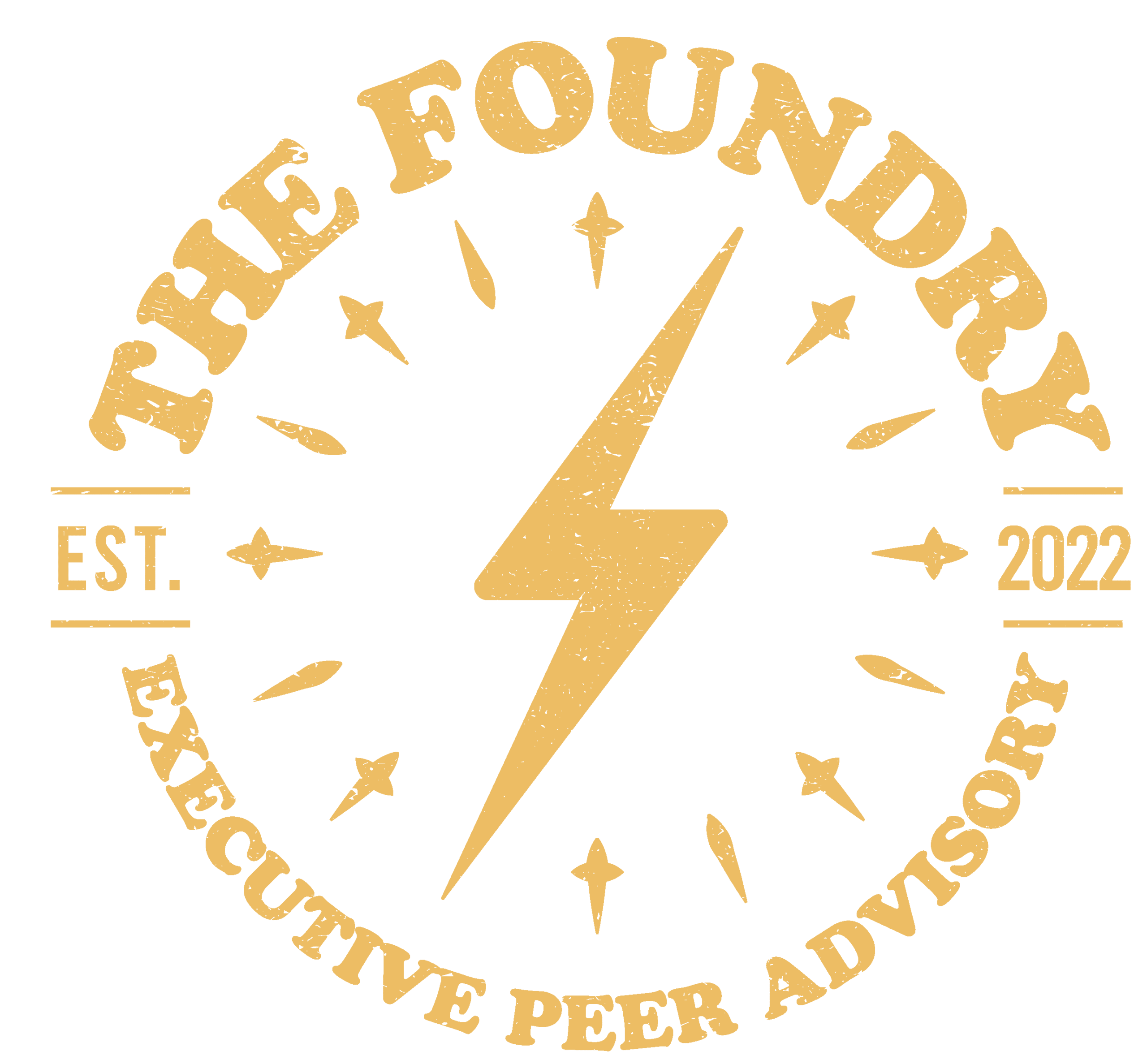Strategic planning is one of the most important activities for leaders, yet it often feels overwhelming. Many of us overcomplicate the process, striving for perfection and missing the bigger picture: strategy is about aligning our vision, faith, and actionable goals.
Here’s how you can integrate proven business practices, biblical wisdom, and the practical simplicity of creating a strategic plan that works for your team and honors your purpose.
1. Start with the “Why”
In both business and faith, clarity of purpose is non-negotiable. As Simon Sinek famously said, “Start with why.” This mirrors Proverbs 19:21: “Many are the plans in a person’s heart, but it is the Lord’s purpose that prevails.”
Your “why” drives everything—your vision, your culture, and your long-term success. Call it your “why”, call it your “vision”, call it whatever works best for you to understand the importance of it. Within the Entrepreneurial Operating System (EOS) this means identifying your Core Values and Core Focus and ensuring every decision aligns with it. This becomes a filter for EVERYTHING you do!
Practical Steps:
- Develop your business’s Core Values and Core Focus. Keep them short but meaningful. Less is more.
- Ask:
- “How does this purpose serve our customers, team, and community?”
- “Are we honoring God through this purpose and using our gifts wisely?”
“Many are the plans in a person’s heart, but it is the Lord’s purpose that prevails.”
Proverbs 19:21
2. Simplify Your Vision and Goals
Every leader wants to dream big, but complexity kills execution. Simplify your vision by focusing on the essentials: your 10-year target, a 3-year picture, and 1-year priorities.
The Bible encourages us to focus on the future without overloading ourselves today: “Therefore do not worry about tomorrow, for tomorrow will worry about itself” (Matthew 6:34).
In Practice:
- Use a framework like the Vision/Traction Organizer (V/TO) to map out:
- Long-term aspirations.
- 90-day priorities (“Rocks”) that are measurable and achievable.
- Reflect with your team:
- “Does this plan move us toward our vision without unnecessary complexity?”
- “Which goals have the most Kingdom and business impact?”
“Therefore do not worry about tomorrow, for tomorrow will worry about itself”
Matthew 6:34
3. Lead with Humility and Trust
Strategic planning often assumes we’re fully in control, but James 4:13-15 reminds us, “You do not know what tomorrow will bring… Instead, you ought to say, ‘If it is the Lord’s will, we will live and do this or that.’”
In business terms, this means being adaptable while staying focused on your mission. Trust your team to execute and trust God to guide the outcomes.
Practical Steps:
- Delegate responsibilities to elevate your team (and yourself!).
- Establish weekly check-in meetings to review progress and solve issues without micromanaging.
- Ask:
- “Are we trusting God’s timing and provision, or are we over-controlling outcomes?”
- “How can I empower others to lead while staying true to the mission?”
“You do not know what tomorrow will bring… Instead, you ought to say, ‘If it is the Lord’s will, we will live and do this or that.’”
James 4:13-15
4. Focus on Execution and Accountability
Great plans are meaningless without action. In business, the difference between mediocrity and success often lies in consistent execution. Similarly, Scripture reminds us in James 2:17 that “faith by itself, if it is not accompanied by action, is dead.”
Use a scorecard to track progress on key metrics and ensure everyone is accountable for their goals. This keeps the team aligned and focused.
Practical Steps:
- Choose 5-15 measurable metrics that reflect the health of your organization.
- Review these metrics weekly with your team and address roadblocks promptly.
- Ask:
- “What’s keeping us from following through on our commitments?”
- “Are we measuring the right things to track progress toward our vision?”
“In the same way, faith by itself, if it is not accompanied by action, is dead.”
James 2:17
5. Celebrate Wins and Reflect on God’s Faithfulness
The end of each planning cycle is an opportunity to celebrate progress and acknowledge God’s provision. Gratitude fuels motivation and reminds us of the bigger picture. Psalm 9:1 says, “I will give thanks to the Lord with my whole heart; I will recount all of your wonderful deeds.”
Dan Sullivan popularized this with a concept called, Always Measure Backwards (AMB). To measure your progress properly is to measure it backward. You can only measure your progress against your starting point. If you do that, you will always see the Gain and be happy with yourself.
Practical Steps:
- Celebrate quarterly wins with your team—big and small.
- Host a reflection session to recognize God’s work in your organization.
- Ask:
- “Where have we seen God’s hand in our successes and challenges?”
- “How can we honor Him as we move forward?”
“I will give thanks to the Lord with my whole heart; I will recount all of your wonderful deeds.”
Psalm 9:1
Bringing It All Together
Strategic planning is more than a to-do list. It’s about aligning your business goals with your purpose, your faith, and your team’s strengths. By blending business best practices, biblical principles, and the structured simplicity of a business operating system, you can create a plan that doesn’t just sit on a shelf—it changes lives.
Questions for Your Team:
Vision Alignment:
- “Does our vision reflect our purpose and values?”
- “Are we pursuing goals that glorify God and serve others?”
Execution:
- “What are our top priorities for the next 90 days?”
- “How can we hold each other accountable while staying adaptable?”
Faith and Trust:
- “Are we relying on God’s strength or just our own efforts?”
- “How can we surrender control while staying disciplined in our work?”
Gratitude:
- “What can we celebrate today as evidence of God’s faithfulness?”
- “How can we encourage our team to reflect on the eternal impact of their work?”
Let’s move forward boldly, humbly, and with a clear plan that inspires action and honors God. What’s your next step? It is time to get started.








